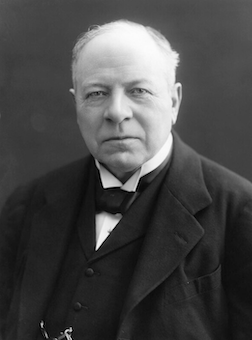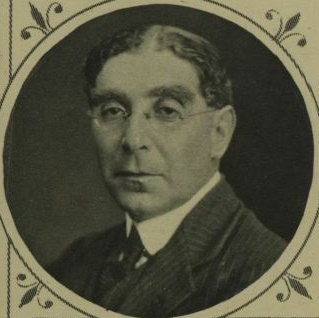Attempts to Abolish the Grand Jury
19th Century Parliamentary Attempts to Abolish the Grand Jury
In 1834 a statute was created which restricted access to a grand jury.
In 1837 a Private Members Bill was moved in the House of Commons calling for the complete abolition of grand juries.
In 1837 a Private Members Bill was moved in the House of Commons calling for the complete abolition of grand juries.
Proposed by George Pryme MP, a Whig lawyer and the first professor of Political Economy at Cambridge University, it was opposed by another Whig, Attorney General Sir. John Campbell MP. Although Campbell thought a government appointed Public Prosecutor would be better than a grand jury, since this proposal wasn't included in the motion he couldn't support it.
Sir Robert Peel MP (Con) also opposed the Bill. He was concerned that abolishing the grand jury would lead to abolition of the petit jury. He considered the grand jury to be a powerful check on magistrates.
The Bill was defeated 25:196.
The Bill was defeated 25:196.
In 1845 a Royal Commission on Criminal Law (8th Report) heard witnesses for and against abolition of the grand jury but made no recommendation for any change.
In 1849 a Parliamentary Select Committee examined the question of abolition and in 1852 a Bill introduced by Attorney General Frederick Thesiger MP (Con) was withdrawn due to a lack of time.
In 1849 a Parliamentary Select Committee examined the question of abolition and in 1852 a Bill introduced by Attorney General Frederick Thesiger MP (Con) was withdrawn due to a lack of time.
In 1857 the Grand Juries (Metropolitan Police District) Bill was reintroduced as a Private Members Bill by Frederick Thesiger MP. This Bill called for the abolition of grand juries in London. Eleven MPs spoke in the House of Commons debate, three in favour and eight against, and Thesiger withdrew the Bill.
Mr. McMahon MP (Ind. Irish Party) raised concerns for anyone caught up in 'political excitement' for they would have no redress to appeal against a Stipendary Magistrate or Attorney General. If the Bill passed it would lead to a Public Prosecutor, an institution he trusted never to see in this country. It would be the same as on the Continent and "an end to the liberty of the English people."
Mr. Corbett MP (Con and Lib) argued that Police Magistrates are created by the Home Secretary and are therefore dependent on them for their 'bread'. Over 6,000 grand jurors were involved every year and educated in the administration of justice. Grand Jury petitions also influenced the law where Parliament had failed and he referred to the abolition of the Death Penalty for comparatively trifling cases.
Mr. Corbett MP (Con and Lib) argued that Police Magistrates are created by the Home Secretary and are therefore dependent on them for their 'bread'. Over 6,000 grand jurors were involved every year and educated in the administration of justice. Grand Jury petitions also influenced the law where Parliament had failed and he referred to the abolition of the Death Penalty for comparatively trifling cases.
Sir Bowyer MP (Lib) quoted Blackstone at length. Although the Bill excluded treason he argued that it did not provide for cases with a political complexion which were most likely to arise in London. Abolishing the Grand Jury in London would be the small end of the wedge.
Mr. Ayrton MP (Lib) argued that the grand jury does the most essential service in guarding the liberty of the subject and it was ridiculous to think a Stipendiary Magistrate - a mere creature of the Home Office, was a sufficient barrier between the Crown and subject. Without the grand jury we would be reduced to the state of continental nations. The Bill should be rejected to "prevent the ultimate predominance of a civil service class."
Mr. Ayrton MP (Lib) argued that the grand jury does the most essential service in guarding the liberty of the subject and it was ridiculous to think a Stipendiary Magistrate - a mere creature of the Home Office, was a sufficient barrier between the Crown and subject. Without the grand jury we would be reduced to the state of continental nations. The Bill should be rejected to "prevent the ultimate predominance of a civil service class."
Although Bills to abolish the Grand Jury didn't pass through the House of Commons ongoing legislation was passed which continued to undermine the Grand Jury by extending the role of magistrates.
In 1859 the Vexatious Indictments Act was enacted. No bill for perjury, conspiracy or false pretences could be presented to a grand jury unless committed by a magistrate.
In 1859 the Vexatious Indictments Act was enacted. No bill for perjury, conspiracy or false pretences could be presented to a grand jury unless committed by a magistrate.
In 1867 Legislation was passed whereby if a defendant was acquitted after being indicted by a grand jury alone (i.e. without the involvement of a magistrate) then the court could order the person prosecuting to pay the defendant's costs.
Attempts to Abolish the Grand Jury Continued into the early 20th Century
The attack on the Grand Jury continued into the 20th century and finished with its abolition in England and Wales in 1933.
In 1913 Lord Chancellor Viscount Haldane appointed a Royal Commission on Delay in the King's Bench Division led by Viscount St. Aldwyn. The Commission recommended that the Grand jury should be discontinued having outlived 'circumstances'. In addition to the expense and inconvenience it caused, the Commission claimed that it could no longer be regarded as 'an essential safeguard to innocence.'
In 1913 Lord Chancellor Viscount Haldane appointed a Royal Commission on Delay in the King's Bench Division led by Viscount St. Aldwyn. The Commission recommended that the Grand jury should be discontinued having outlived 'circumstances'. In addition to the expense and inconvenience it caused, the Commission claimed that it could no longer be regarded as 'an essential safeguard to innocence.'
In 1917 a Bill to suspend Grand Juries during the war was passed without division. This Grand Jury Suspension Act was not repealed until l921.
In 1920 the Administration of Justice Act stipulated that if an accused person plead guilty in front of a magistrate then the grand jury must return a true bill, that is indict them without hearing any witnesses.
In 1923 Clause 3 of the Criminal Justice Bill introduced in the House of Lords called for the abolition of Grand Juries at Quarter Sessions. An amendment to abolish the Grand Jury in the Central Criminal Court was withdrawn.
In 1920 the Administration of Justice Act stipulated that if an accused person plead guilty in front of a magistrate then the grand jury must return a true bill, that is indict them without hearing any witnesses.
In 1923 Clause 3 of the Criminal Justice Bill introduced in the House of Lords called for the abolition of Grand Juries at Quarter Sessions. An amendment to abolish the Grand Jury in the Central Criminal Court was withdrawn.
Lord Haldane (Lab) spoke in favour of the proposal and hoped that a further Bill would abolish Grand Juries at the Assizes as well.
Lord Paramour (Lab) opposed the clause and thought that the Society of Chairmen and Vice Chairmen of Quarter Session supported his position. Grand Juries were a constitutional safeguard and brought the administration of justice before large bodies of the non-legal population. "I say that the expert side is quite sufficiently developed, and the common sense and common view side ought to be maintained in all parts of our legal system." Moreover why should defendants at Quarter Sessions have fewer rights than defendants at Assizes?
Viscount Ullswater (Con)reported that two judges had explained to him that Grand Juries should be kept at Assizes because they gave country gentlemen, usually magistrates, the opportunity to see how justice was administered by the High Court.

Lord Haldane (1856-1928)
Politician, lawyer and philosopher. He helped Sidney and Beatrice Webb found the London School of Economics in 1895 and was a member of their Coefficents Dining Club.
In the House of Commons seven MPs all spoke in favour of abolition of the Grand Jury at Quarter Sessions. The Bill was sent to Standing Committee but fell because a General Election was called. An attempt to reintroduce the Bill in 1924 quickly passed the House of Lords but once again a General Election prevented further action.
In 1925 Clause 18 of the Criminal Justice Bill introduced in the House of Commons called for the abolition of Grand Juries at Quarter Sessions. Six MPs spoke in the debate with two in favour and four against abolition. Clause 18 was removed by 184:149.

Sir Henry Slesser (1883-1979)
Barrister and politician. He supported the Distributist League set up by G.K. Chesterton
Sir Henry Slesser MP (Fabian) spoke against abolition. "I do not suffer from the Bolshevik desire of the Gentlemen on the Front Bench opposite to destroy all these ancient, venerable and useful institutions." Addressing his 'own side' he argued that if grand juries were dominated by more prosperous people they should be democratised not abolished. "It is a great mistake to think that justice should be a matter entirely concerning professional people." He observed a tendency for the administration of criminal justice to become ever more professional and ever more a matter of bureaucracy and expert regulation. The Grand Jury was a very good corrective against such tendencies.
Colonel Wedgwood MP (Lib/Lab) described the Grand jury as the main defence of British liberty especially for those citizens charged with constructive treason and called for the Grand Jury to be democratised.